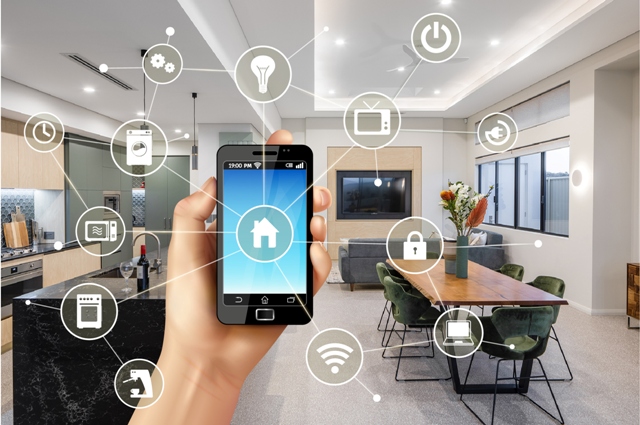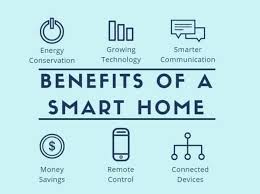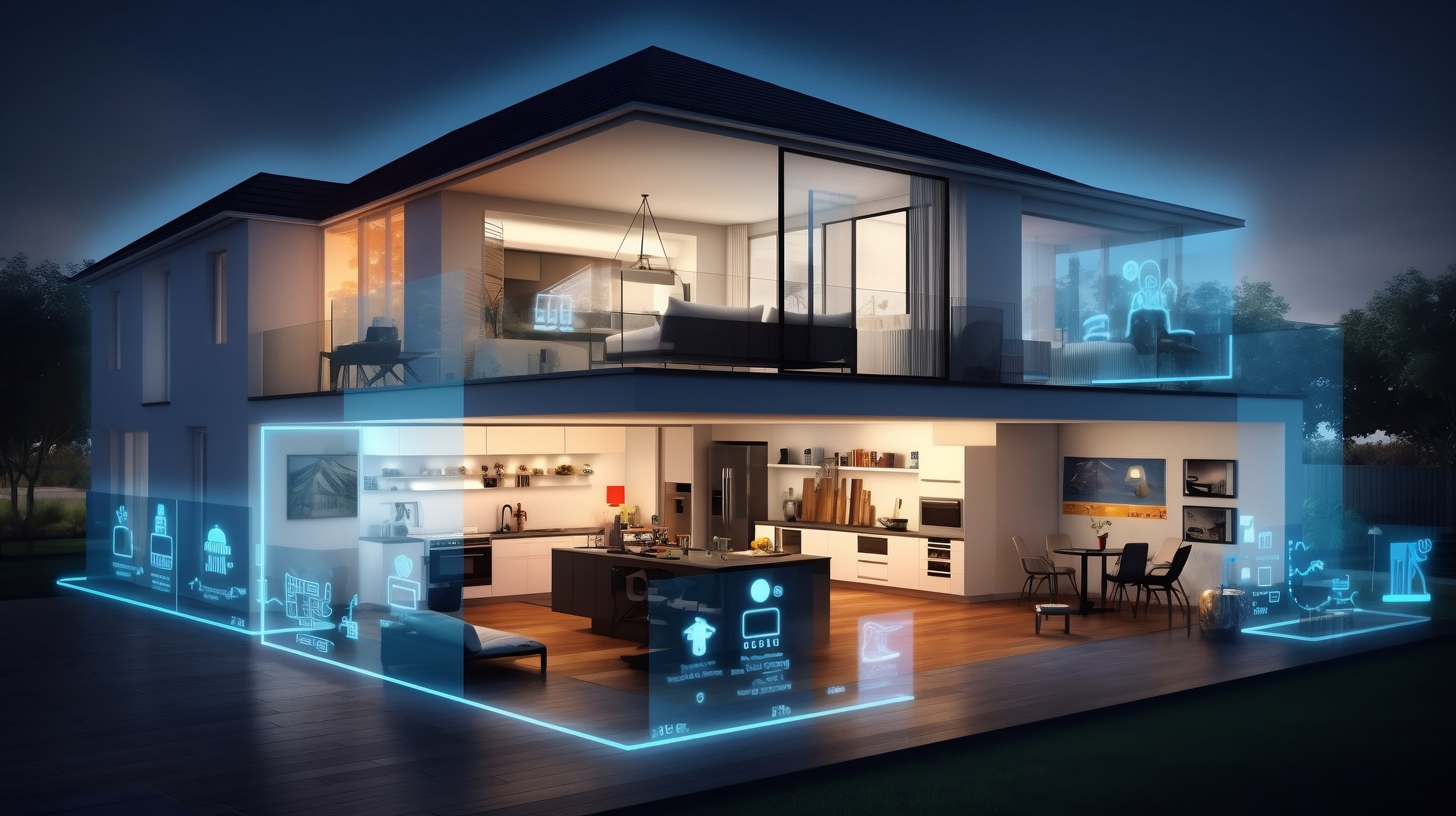Smart Home Revolution: How Appliances Are Shaping the Future of Modern Living
The rise of smart appliances is transforming the way we interact with our homes, creating a more connected, efficient, and convenient living environment. From intelligent refrigerators to Wi-Fi-enabled washing machines, these appliances are changing how we approach everyday tasks. With their ability to integrate with home automation systems, smart appliances are not just simplifying daily chores—they are helping us live more sustainably and effectively.

The Rise of Smart Appliances
Smart appliances are powered by internet connectivity, allowing users to control and monitor their home devices remotely through smartphones, voice assistants, or other smart home hubs. These devices are designed to make life easier by offering automation, convenience, and real-time data.
For example, smart refrigerators can track food inventory, alert users when groceries are running low, and even suggest recipes based on what’s inside. Smart washing machines allow users to start laundry remotely or adjust settings through their phones, while smart thermostats learn a household’s temperature preferences and adjust heating or cooling for maximum energy efficiency.
Benefits of Smart Appliances
-
Convenience and Automation: One of the key features of smart appliances is their ability to automate tasks. For instance, a smart oven can be preheated remotely, or a coffee maker can brew coffee before you even get out of bed. This convenience streamlines daily tasks, saving time and effort.
-
Energy Efficiency: Many smart appliances are designed to optimize energy use, reducing overall household energy consumption. For example, smart thermostats can adjust the temperature based on occupancy or time of day, while smart lighting systems automatically dim or turn off when not in use. These features contribute to lower utility bills and a smaller environmental footprint.
-
Remote Control and Monitoring: Through apps or voice assistants like Amazon Alexa or Google Assistant, users can control smart appliances from anywhere. Whether it’s adjusting the thermostat while away from home or starting the laundry cycle remotely, this feature gives users the flexibility to manage their home’s appliances with ease.
Better Home Management: With smart appliances, homeowners can track usage patterns, maintenance schedules, and performance data. For instance, some appliances send alerts when it's time to clean filters, replace parts, or schedule maintenance, helping to extend their lifespan and ensure optimal performance.

Popular Smart Appliances Revolutionizing Homes
-
Smart Refrigerators: These advanced refrigerators offer more than just cooling. They can track inventory, suggest recipes based on available ingredients, and even connect to shopping apps to order groceries automatically. Some models have built-in cameras, so users can check what’s inside while away from home.
-
Smart Ovens and Cooking Appliances: Smart ovens can be controlled remotely, allowing users to preheat the oven, adjust cooking temperatures, or set timers. Smart kitchen devices also include air fryers and coffee makers, making meal preparation easier and more efficient.
-
Smart Washing Machines: These appliances enable remote control of laundry cycles. You can start a wash while at work or adjust settings like water temperature or load size from your phone, making laundry easier and more convenient.
-
Smart Thermostats: A smart thermostat learns a user’s preferences and adjusts temperatures accordingly to save energy. It can also be controlled remotely, ensuring comfort and efficiency no matter where you are.
Smart Lighting and Climate Control: Smart lighting systems can be programmed to turn on or off at specific times, change brightness or color, and even sync with other smart devices in the home. Climate control systems like smart fans and air conditioners adjust to the home’s needs, making the environment more comfortable while conserving energy.
How Smart Appliances Are Shaping the Future of Living
As we move towards a more connected world, smart appliances will continue to evolve, playing a significant role in the way we live. In the future, appliances will become even more intuitive, with the ability to learn user habits and preferences, anticipate needs, and offer personalized solutions.
-
Seamless Integration with Smart Homes: The future of smart appliances lies in their integration into an entire smart home ecosystem. For example, refrigerators, dishwashers, washing machines, and thermostats could sync up to create a system that automatically adjusts to your routines, preferences, and energy-saving goals.
-
Enhanced Sustainability: With growing concerns about the environment, smart appliances are playing an essential role in making homes more sustainable. Features like energy tracking, automated adjustments based on weather or occupancy, and smart recycling programs all contribute to reducing household carbon footprints.
-
Increased Personalization: As artificial intelligence (AI) and machine learning technologies evolve, smart appliances will become even more customized to individual lifestyles. They’ll anticipate needs, adapt to schedules, and create personalized recommendations, improving efficiency and convenience in ways we’ve never seen before.
Challenges and Considerations
While smart appliances offer many benefits, there are challenges that come with integrating these technologies into our homes:
-
Cost: Smart appliances are often more expensive than their traditional counterparts. However, many users find that the energy savings and convenience over time justify the initial investment.
-
Security and Privacy: With the rise of connected devices comes the concern of data privacy and cybersecurity. As more appliances collect data and communicate with external servers, securing that data and ensuring privacy will be crucial.
-
Compatibility: Not all smart appliances are compatible with each other, which could limit their integration in homes that use multiple brands and platforms. However, as standards evolve, we may see more seamless integration across various smart home ecosystems.
Conclusion: The Future of Home Appliances
Smart appliances are revolutionizing how we manage our homes, offering unprecedented convenience, efficiency, and control. They enable us to live smarter, with the power to automate tasks, reduce energy consumption, and make home management easier than ever before. As technology continues to advance, we can expect even more innovation in the realm of smart appliances, shaping the future of modern living with personalized, connected, and sustainable solutions.
The future of appliances isn’t just about making life easier—it’s about creating homes that are more intelligent, efficient, and responsive to our needs, helping us live a healthier, more sustainable lifestyle.


You must be logged in to post a comment.